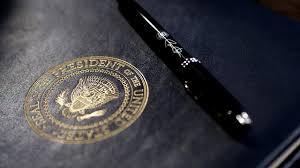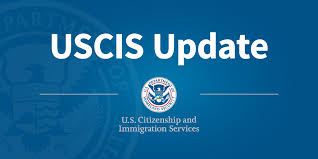Learn More About:
Immigration News & Updates eNewsletter © 2011 - 2021
For questions about U.S. Residency, Green Cards and Immigration Visas, Visit our Website at: www.ImmigrateToday.com or call our office at: (954) 382-5378
Check Out This Cool Stuff For Immigrants....
Immigration
Questions & Answers
This Week's Immigration News
Immigration News & Updates
Immigration How To:
How Do I Know What Questions The Officer Will Ask At My Marriage Interview?
Questions About Immigration? We have the answers!
We Are Here To Help, Call us now for a FREE consultation (954) 382-5378
Question: My mom got her green card through my sister who was married to an American and had her us citizenship. But the problem was that I was not allowed to immigrate to America with my mom because my sister sponsored her. Once she got her green card in 2016 she filed for me 2017 and I have been waiting ever since. My question is whether it would be faster for me to immigrate if she got her citizenship?
President Biden Signs Three New Immigration Executive Orders
AMERICAN IMMIGRATION
LAW CENTERS
Immigration Questions: (954) 382-5378
POSTING DATE: February 8, 2021
Answer: Great question, the current waiting time for adult single sons and daughters of U.S. residents (immigration category F2B) is about 5 years or so. Believe it or not, the waiting line for adult single children of U.S. citizens (immigration category F1) is a bit longer, 6 years. So, it will be faster for you to stay exactly where you are in the F2B category. You should be able to immigrate to the U.S. some time in 2022. I hope this was helpful to you.
Immigration Bills Coming Up In Congress
American Immigration
Law Center
2645 Executive Park Drive
Suite 137
Weston, Florida 33331
The CATO Institute reports that there are perhaps ten Immigration Bills which could be considered by Congress in March and passed by the Democratic majority.
American Dream and Promise Act of 2019 If this bill passed, it would provide green cards (permanent residence) to certain illegal immigrants who entered the U.S. at least four years ago as children before the age of 18, as well as those in the Temporary Protected Status (TPS) program as of January 1, 2017 (appox 2.6 million).
Venezuela TPS Act of 2019 This bill designates Venezuela as a country whose nationals are eligible for Temporary Protected Status (TPS), for an initial period of 18 months, which would likely continue to be extended for years to come.
As part of President Biden’s ongoing efforts to reverse Trump era policies which have systematically dismantled our immigration system, he signed three new Executive Orders on immigration last week. Here’s a run-down.
Task Force To Reunite Families Separated At The Border: The first order creates a task force charged with reuniting families that the Trump administration separated at the border and revokes the child separation policy. As part of its duties, the task force will work nationwide to find parents and children who were separated at the border.
Helpful Immigration Tips You Can Use...
Tips For Couples Preparing For A Marriage Immigration Residency Interview
Marriage residency cases can be very challenging, especially for couples who have not planned the immigration process well and properly documented their marital life together. This includes couples who live with family members, those who don’t have a joint bank account that they regularly use and those who don’t bring documents to the residency interview to prove that they live together as a married couple. For most marriage interviews, the USCIS officer brings the couple to his or her office, has them take an Oath swearing to tell the truth and then proceeds to verify official documentation including Driver’s Licenses, Passport, birth certificates, marriage certificate, divorce certificate if applicable, etc.
Question: Me and my husband who is American got married last year and I want to take his last name. I was on a work visa when we met, so I have a social security card from my work program and a driver’s license which expires next year. It was really hard to get an appointment but I was finally able to and went to the drivers license office with my marriage certificate and they refused to change my name because they say it does not match the name in the immigration data base from my work visa. We didn’t file my papers yet because we are saving up the money. So I would like to know if there is any other way to change my name before we file my immigration papers?
Answer: When marrying a U.S. Citizen or Resident, you can change your last name to your spouse’s last name, or even hyphenate your last name with that of your husbands. Your marriage certificate is legally sufficient to request the legal name change with USCIS, which can be resolved once your Residency petition is filed using your married name. After that, approximately six months later you will receive your Work Authorization card and then you can go to the Social Security Administration office and have your Social Security card updated with your new name. Once you have that, you can take your new Social Security card, along with your Work Authorization card and residency receipts to the Florida Department of Motor Vehicles in order to have your Driver’s License issued with your new married name.
Tackling Illegal Migration At The Border: The order directs agencies to identify the root cause that drives migrants from south and central America to the U.S. and propose solutions, while ensuring a “safe, lawful, and orderly migration in the region.” for those who do seek to enter the U.S..
Restoring Fairness, Integrity And Faith In Our Legal Immigration System: The order establishes a task force to conduct a top-to-bottom review of recent regulations, policies, and guidance set up by the Trump administration as barriers to our legal immigration system. This measure seeks to identify and reverse hundreds (if not thousands) of Trump era policies that degraded our integrity and put roadblocks to legal immigration. This includes reviewing and likely terminating Trump’s recent changes to the public charge rule which requires immigrants to prove that they are not likely to obtain public benefits in the future, as well as developing strategies to streamline the Naturalization process to make it quicker and easier to become a U.S. Citizen. This step alone should soon begin to bring about profound changes in USCIS operational policies and attitudes towards providing immigration benefits, including providing faster processing times and the issuance of less requests for evidence (RFE).
Farm Workforce Modernization Act of 2019 This measure would provide green cards for illegal immigrant farm workers and their families who have been working in the U.S. for many years. It would also make improvements and streamline the H-2A guest worker program.
Fairness for High-Skilled Immigrants Act Among other things, the bill would phase out the country limits for employment-based green cards over three years and raise the country caps from 15 percent for family-sponsored immigrants. This is important because under current laws, no more than 7 % of green cards in the employment and family-based programs may go to immigrants from any single birthplace. This has led to a long wait for nationals of certain countries like India and China.
AMIGOS Act The bill would add Portugal to the list of countries whose nationals may participate in the E-1 and E-2 nonimmigrant visa programs for treaty traders and investors.
E-3 nonimmigrant visa program for Ireland This would add Ireland to the E-3 nonimmigrant visa worker program, which is currently enjoyed by Australian citizens.
NO BAN Act Would restrict presidents from having the authority to ban immigrants or nonimmigrants by outlawing bans based on religion, race, sex, nationality, place of birth, or place of residence. It would also require that any ban issued by a president be narrowly tailored using the least restrictive means necessary. It would also create a rebuttable presumption in favor of granting family-based and humanitarian waivers to the ban, and authorize anyone in the U.S. harmed by a ban to challenge the ban in court.
Access to Counsel Act of 2020 Would require the Department of Homeland Security to allow immigrants access to immigration counsel for anyone subject to secondary or deferred inspection at U.S. ports of entry. No one can give up their legal permanent resident status without waiving in writing their right to confer with an attorney.
Homeland Security Improvement Act This Bill would establish an independent, neutral, and standardized process to assist individuals in resolving complaints related to U.S. Customs and Border Protection and Immigration and Customs Enforcement, a Border Oversight Panel, which shall make recommendations related to border enforcement policies, and a Border Community Liaison in each Border Patrol sector on the northern and southern borders.
Humanitarian Standards for Individuals in Customs and Border Protection Custody Act This bill requires health screenings of detained immigrants at the border and sets timelines for those screenings, requires the provision of interpreters, chaperones, and mental health treatment when necessary. It also mandates certain baseline standards for care of detainees.
Throughout Trump’s time in office, his administration implemented numerous rules and policies to restrict legal immigration, particularly those involving H-1B work visas for professional workers. USCIS increased scrutiny of applications, nearly 40% of all H-1B cases received requests for evidence and denial rates rose.
And if that were not enough, just prior to leaving office, the Department of Homeland Security rushed through new H-1B rules which would drastically alter the entire program by ranking registrations in preference of wage levels of the proposed position.
USCIS Announces It Will Not Apply Trump Era H-1B Restrictions
To counter these last-minute rules, the Biden administration announced last week that it will not implement the new rule and will instead use the same H1B random selection registration system in place prior to the rule. We expect further details of the registration date to be announced soon.
Question: We have a problem and hope you can help. My sister reads the national weekly religiously and says maybe you can help. I came to florida in 2014 and met my citizen husband while attending church with relatives and we fell in love and got married in 2015 and I got my papers in 2016. I have a 20 yrs old son back home and we were planning to bring him up, but I wanted him to finish school, then money got tight and we wanted to wait because my husband lost his job for a few months due to covid19 and time just passed by. Now come to find out that since I am a green card holder if I file his papers now he wont be able to come up here as a minor anymore because he turns age 21 in April. I wish I had known that earlier but we didn’t and now I don’t know what to do. Can you please help us.
Answer: The issue you are discussing is extremely important and one which needlessly often causes years of separation between children and parents, all due to an issue of timing. For background, as a green card holder (U.S. resident), you can file for your minor children (under age 21), in the F2A Immigration Category, which currently takes a few years to immigrate. However, since you are not a citizen, once he reaches age 21, he technically “ages out”, and moves to the F2B immigration category for adult, single children of green card holders, with a waiting line of about 5 years. The Child Status Protection Act (CSPA) can reduce the child’s age down by subtracting the time that the I-130 petition is pending with the USCIS prior to approval, but that is all. If after subtracting that time, your son’s age is still age 21 or older, then he automatically moves to the F2B category. The solution in your case is for your U.S. citizen husband to sponsor your son. When a U.S. citizen files for a child, the child’s age becomes “fixed” as of the date the USCIS receives the application. So even though a child may be 21 or more by the time he or she actually goes through the immigration process, for technical purposes, the child remains a minor. Your husband can sponsor your son (as his step father), since you got married in 2015 when your son was still under age 18. Let me know if you would like for me to handle your son’s residency process.
Following that, the interviewer may ask the couple questions regarding their initial meeting, how long they dated prior to marriage, who proposed, whether they had a wedding ceremony, who attended the wedding, where did they buy the wedding rings, and so on.
The aim is for the officer to observe how the couple answers and interacts to get a feeling of whether the marriage seems real or not. After the questioning or even during it, the officer will generally want to see the couple’s marital documentation to prove they live together. This is where many couples fall short and make the process so much more complicated than it needs to be. Certain documents and lack thereof are red flags to a trained officer, including when a couple lives with relatives, does not have utility bills in either of their names, does not share a joint bank account, does not have a driver’s license with the current marital address on it, does not have joint auto insurance, etc..
In cases where a couple seems nervous, does not answer the questions naturally and fails to bring substantive marital documentation, perhaps only affidavits from friends and co-workers, many officers will not approve the case. Instead, they will send the couple a notice requesting them to provide additional documentation. If the couple provides some documents but not enough, the officer can reschedule them to return to the USCIS at a later date for a follow-up interview. During that next interview, when an officer suspects the marriage is fraudulent, he or she may simply take the U.S. Citizen spouse in to the office for questioning, tell the Citizen spouse if the marriage is fake he or she will need to withdraw the spousal application and not to tell the immigrant spouse about the withdrawal. In many cases, if the marriage is not real, the Citizen will withdraw the case and later the immigrant spouse will receive a denial in the mail some 90 days or so later.
When a couple has little documentation but continues to assert the marriage is genuine, the USCIS officer can conduct separate interviews with each spouse in order to determine if there are any inconsistencies in their statements. These interviews can be quite intense and include very detailed questions about the couple’s life together, living arrangements, finances, family and routines. Couples who do not really live together typically cannot answer such questions without inadvertently providing contradictory answers. If the couple clearly provides very similar information, the officer may approve the case, otherwise, the case will need to be reviewed for further action. In these cases, the officer may send the couple a request to provide more evidence to explain seemingly contradictory answers and if the response does not satisfy the officer, the case could well be denied.
The best advice for couples is to avoid the nightmare of multiple marital interviews in the first place, by taking steps from the beginning of their immigration process, which will make their journey much smoother and successful. In immigration, nothing is real to a USCIS officer unless you have a document to prove it, simple as that.
Don’t Forget Your Marital Documents!
Marriage residency cases can be very tough - even for those that are real! Commonly, couples navigating through marriage immigration process often find it daunting, unsure of the procedures, required documentation and timing involved. However, filing the case is just the start, the important part comes after that, in the time in between filing the case and the USCIS residency interview, when all the necessary marital documentation is established and compiled, in order to prove the legitimacy of the marriage.
Here are a few tips for couples representing themselves in the residency process:
1) Take the process very seriously – it’s better to be over prepared, rather than under prepared and delay the green card process
2) Do whatever it takes to have a joint marital bank account that both spouses use on a daily basis (not just a saving account). Never use separate bank accounts and always pay utilities, rent and other expenses from bank funds, not cash.
3) Don’t go paperless! I love trees and the environment, but the USCIS could care less, they want to see marital bills, statements and invoices with joint names or at least separate bills for each spouse going to the same marital address
4) Have a lease with both spouses’ names and pay rent from your joint account (even if you live with relative – which you should not!)
5) Always do your tax return married filing jointly, don’t file head of household just to get more money back from the IRS, you are shooting yourself in the foot. Do you want a Green Card or a little more money?
6) Split the utility bills, get several in the U.S. Citizen spouse’s name and several for the foreign national spouse
7) Get joint car insurance, don’t stay on your parents policy, really, you are married, act like it!
8) Make sure both spouses Driver’s Licenses are at the same marital address
9) Take lots of pictures with family and friends in different occasions.
These are just the bottom line documents the USCIS officer is looking for. However, the more marital documents, the better, like joint car registration, joint health insurance, joint cell phone plan, fitness club family plan, etc, etc. The more documents a couple brings to their USCIS interview, the faster the case will be approved. Couples who get stuck somewhere in the process can always give me a call and I will try to steer them in the right direction.
General Advice For Your Marriage Immigration Interview & Sample Interview Questions
In most residency interviews based upon marriage, a couple is interviewed together in the same room and asked very general information about their dating history, how they met, how long they dated before they married, did they have a wedding or get married at the courthouse, etc.. Most couple’s easily answer such questions and the interview moves on to technical matters like marital documents and information on the immigration applications.
However in some cases, for a variety of reasons, prior to the interview, an officer may suspect the couple’s marriage is not genuine and instead of bringing the couple in together, may interview each spouse separately to confirm that they have similar answers to common questions about the marital relationship and life together.
When this happens, it is very important to remain calm and listen very carefully to the questions being asked. Its also very important to remember never to volunteer additional information, just answer the questions asked For most questions, the shorter and more direct the answers are, the shorter the interview and the higher the chance of success. If the question is a yes or no question, give yes or no answers only. If the question is a simple question like "What is your name?" answer simply with your name. If you don’t fully understand the question, ask the Officer to repeat it, don’t ever guess. If you do not know the answer to a question, do not lie. Say, "I don't know the answer to that " or "I don't remember.". It’s ok to say you are nervous.
Sample Marriage Residency Interview Questions
Be prepared to remember recent events from the past few days before the interview, including the day of the interview:
-How did you get to this interview, car, bus, who did you come with, who’s car?
-Who cooked dinner last night?
-What did you have for dinner last night?
-Who woke up first this morning?
-Where did you park the car this morning?
-How many cars do you have?
-Officer can ask couple to show the key to their apartment/home and mailbox key to compare
-Officer can ask couple for password to phone to look at cell phone pics and txts to see if the couple has pictures with each other and are they texting with each other.
Questions About Your Courtship Period
Reflect on the history of your relationship. Be prepared to portray your journey from initial meeting to marriage. First date, subsequent meetings, important events, happy moments, sad moments, disagreements, times spent together, times spent with each other’s family and friends, special gifts, proposal, acceptance, sharing the news with family and friends, etc
1. Who introduced you to your spouse?
2. When and where did you meet the first time?
3. Could you describe the first meeting?
4. Where were you living at the time? Where was your spouse living?
5. Who was your spouse living with when you met?
6. Did you exchange phone numbers and/or email addresses?
7. Did you make arrangements to meet again?
8. When did you next meet?
9. Where did you and your spouse go on your second date?
10. What did the two of you have in common?
11. What attracted you to your spouse?
12. Where did you go for dates?
13. When did your relationship turn romantic?
14. When did you decide to get married? Where were you at the time?
15.How long was it before you decided to get married?
16. Who proposed to whom?
17. Did you give your spouse a ring when you proposed?
18. Why did you decide to have a long (or short) engagement?
19. Did you live together before marriage?
20. Did your parents approve of the match? Why or Why not?
Questions About Your Wedding
Be prepared to answer questions about the wedding ceremony, reception, guests, interesting or embarrassing events, if any, that happened during the ceremony or reception, what was served, how guests were entertained, did the wedding ceremony have a theme, who wrote the vows, who purchased the rings - how and where, who paid for the ceremony, honeymoon plans, etc.
1. What is the date of your marriage?
2. What day of the week did you get married?
3. Where was the wedding held?
4. How did you and your spouse get to the church, temple, mosque, courthouse etc.?
5. Did you exchange wedding rings? Did you and your spouse purchase them together or separately?
6. Is he/she wearing her wedding ring right now?
7. Who were the bridesmaids/groomsmen?
8. Did each of your parents attend the wedding?
9. Did any of your, and your spouses, family members attend? If so, who?
10. Who were the witnesses to the ceremony?
11. How many people attended your wedding?
12. How late did the guests stay at the wedding?
13. Did you have a reception after the ceremony?
14. Could you please describe the reception?
15. Was there music or other entertainment?
16. Did the bride change clothes for the reception?
17. What kind of cake or other food was served?
18. Did you serve the liquor? What kind?
19. Did anyone get drunk or otherwise embarrass themselves at the reception? Who? Describe.
20. What time did you and the [bride or groom] leave the reception?
21. If you didn’t have a reception, what did you do after the wedding ceremony?
22. Could you please show me any photos of the wedding ceremony and/or reception?
23. Did you go on a honeymoon? When did you leave? How did you get there? Where did you go? For how long? What airlines?
24. How many days did you spend on your honeymoon?
25. What date did you and your spouse leave for your honeymoon?
26. What date did you and your spouse return from your honeymoon?
27. Did you get married to get into the US? Did you pay your spouse to get married or make any other deals?
28. Why do you think your spouse wants to come to the US? Are you worried that s/he married you for a green card?
29. What are your concerns about being married to someone from another culture?
30. Do you think that your relationship will work?
31. Do you trust your spouse?
32. Where did you live after the wedding?
Questions About Your Living Conditions
Be prepared to answer questions relating to your present and past residences where you have lived together, including furniture and appliances, automobiles you have or had, type of residence, how big or small, number of rooms, neighbors, and visitors. Also be prepared to answer questions about job details, work schedules and working conditions, earnings, joint-spending, investments, tax filings, joint bank accounts, financial dealings, mortgages, future plans etc.
If the USCIS officer suspects fraud he or she will go into much more detail. If this is the case you may also be asked to draw a sketch of a particular room or portion of your residence. Sometimes you may also be asked to show your house keys and tell what keys go to each door.
1. Describe the place where you lived right after the marriage? Number of bedrooms and bathrooms; furnishings; color of walls, floor covering, appliances, etc; type of air conditioning (window or central), heating (gas or electrical), etc; number of telephones, TV sets etc.
2. Where do you live now?
3. How long have you been staying at the current address?
4. Do you live in a home (single family, condominium, townhouse) or apartment? How much is the mortgage or rent? Who pays it? When is it paid?
If you live in an apartment or condominium:
1. What floor do you live on?
2. What compass direction does the front door face?
3. How many keys do you need to go from the street to the apartment?
5. What date did you sign the lease?
6. When does the lease expire?
7. Does the complex have a pool?
8. Where is the mailbox located, in a central place or in front of your door for example?
9. If you live in a house, what day is garbage day?
10. Who takes the garbage out generally?11. How many people are living with you and your spouse?
12. Who are your neighbors?
13. Is your sofa a regular one or does it have a pull-out bed? If later, have you ever had guests sleep there?
14. What size is your bed (twin, queen, king)?
15. Do you have a regular mattress, futon or waterbed?
16. Do you have lamps next to your bed?
17. Where do you keep your clothes? Where does your spouse keep his/her clothes?
18. How many closets are in the apartment?
19. On what side of the closet does your spouse hang his/her clothes?
20. What color are the curtains in your house?
21. What type of curtains or window coverings are in your living room? What color?
22. Is there a carpet in your front hallway? What color?
23. How many staircases are in your house?
24. How many cars do you have?
25. Do you have a garage? How many cars fit into it? Who parks in it? Do you use a garage door opener?
26. Who keeps the garage door opener in the car?
27. What color are the kitchen curtains?
28. Do you have a barbecue grill? Do you use it? Is it gas or charcoal?
29. Where is the garbage kept in the kitchen?
30. Do you use bottled or a water filtration system? If so, describe it.
31. Does the refrigerator make ice or do you use ice trays?
32. Describe the refrigerator doors side by side and top to bottom.
33. Where do you keep your toothbrushes?
34. Where are the bathroom towels kept?
35. Where do you keep the dirty clothes?
36. How many sinks, toilets, and showers are there in your house/apartment in total?
37. Do you have a bathtub or a shower?
38. Do you have a shower curtain or shower door?
39. When sitting on the toilet bowl, where is the toilet paper situated? (Left, Right, Front?)
40. Do you hang the clothes on a line or do you use a dryer?
41. Where is the clothes line located?
42. How many remote controls are there in your house?
43. How may TV sets are in your house? In which rooms?
44. Do you have cable TV or satellite dish?
45. Who is the cable/dish provider in your house?
46. Do you have a still camera? Is that a digital camera or one with film?
47. Who uses the camera most often?
48. Do you have a camcorder? What brand is it?
49. Who takes pictures at important family occasions or during sightseeing?
50. How many telephones are in your house? Where are they?
51. Is the telephone a cordless or corded telephone?
52. What color is the telephone?
53. Do both of you have cell phones? Do you have a family plan on the phones?
54. Does your phone have an answering machine? Who checks the messages?
55. Do you have a VCR? What brand? Do you use it only to watch videos, or do you record any TV shows?
56. Do you have a DVD player? What brand?
57. Where do you work?
58. What days of the week do you work? What hours do you work?
59. What is your annual salary?
60. What’s your spouse’s educational background?
61. If your spouse has a college degree, when and where did he/she acquire it?
62. Where does your spouse work?
63. What is your spouse’s position at the job?
64. What are your spouse’s working hours?
65. What days of the week does your spouse work?
66. What is your phone number at work?
67. What is your spouse’s phone number at work?
68. Do you know your spouse’s salary? If yes, how much is it?
69. When is your spouse paid?
70. Which of your financial matters are shared, or who supports the other financially?
71. Who takes care of paying the bills?
72. Do you write checks for paying the bills or online billing?
73. Did you file a joint tax return this year? Can I see the copy of it?
74. Do you jointly own any property? If yes, can I see the copies of the documents?
75. Do you have an insurance policy listing your spouse as the beneficiary? If yes, can I see copy of the same?
76. Do you have any utility bills where both of you are listed together?
77. Do you have receipts from items you have purchased together?
78. Do you have any joint bank accounts? Where? What kind of accounts (checking, savings, money market etc.)?
79. Are both of you listed on the account? As proof, do you have a bank letter or cancelled checks?
80. Does your spouse have bank accounts without you? If yes, what is the name of the Bank?
Questions About Your Lifestyle and Habits
Be prepared to answer questions about each others general habits, lifestyle, preferences, daily routines, schedules, household chores, favorite pastimes – individual and together, holidays spent together, specific rituals that you follow, shopping habits, food habits, sleeping habits, religious routines, etc.
1. Do you set up the alarm clock to get up in the morning?
2. Who gets up first? At what time?
3. Who does most of the cooking?
4. Who makes breakfast?
5. What does your spouse drink in the morning? (Such as coffee, tea, milk etc.) If so, does he/she use cream and/or sugar?
6. What do each of you eat for breakfast?
7. Who cleans the house?
8. What are the garbage pick up days?
9. Who goes grocery shopping? Where? How often? How do you get there?
10. What kind of toothpaste, soap, and shampoo do each of you use?
11. Does your spouse use a regular toothbrush or an electric one?
12. Do you have any pets? Which ones (such as dog, cat, fish etc.)? Who feeds it? Who walks it or cleans its cage, kitty litter box etc?
13. Is your spouse taking any medication? What are the names of the medication? What condition requires that medication?
14. What are your working hours?
15. What time do you or your spouse arrive home (whoever is working)?
16. How does your spouse get home from work?
17. How often and what time do you call each other by phone?
18. When was the last day both of you were together? Describe in detailed chronological order what both of you did that day.
19. What is a typical weekend for you and your spouse?
20. What are your favorite foods and who cooks what?
21. What is your spouse’s most (or least) favorite food?
22. Is there a particular food that you eat every week? What is it?
23. How many times a week on average do you eat out?
24. What is your special restaurant?
25. What is your spouse’s favorite sport?
26. What is your spouse’s favorite team?
27. Have you ever been to a game with your spouse? If yes, when did you attend?
28. Does your spouse drink?
29. What is your spouse’s favorite beer?
30. What is your spouse’s favorite cigarette?
31. What is your spouse’s favorite color?
32. What is your spouse’s favorite movie?
33. Does your spouse listen to the radio? What station?
34. Does your spouse listen to music? What kind of equipment does he/she have such as walkman, iPod etc?
35. Do you watch TV shows together, or separately?
35. Name one TV show that you always watch together.
36. Where do you rent movies from?
37. What religious holidays do you celebrate together?
38. Do you and/or your spouse attend regular religious services? Where?
39. What is the most important holiday of the year in your household? Where do you typically celebrate it?
40. What did you do for Christmas, New Year, your anniversary? Did you exchange gifts? If so, what kind of gift?
41. How did you celebrate your most recent wedding anniversary?
42. What did you do for your spouse’s last birthday?
43. What did you give each other for your last birthdays?
44. Have you and your spouse gone to see a movie (or any other form of entertainment) lately? When and what did you see?
45. When was your last vacation? Did you and your spouse go anywhere together at that time?
46. Do you have the photos from your last vacation together?
47. What do you like best about the other? The least about each other?
48. When was your last argument – time, day, place, subject? Who started the argument? How was it resolved?
49. What time do you and your spouse go to bed in the evening?
50. Who sleeps on each side of the bed?
51. Do either of you read or watch television before going to sleep?
52. Do you leave any lights on when you go to sleep at night?
53. Does your spouse snore?
54. What kind of birth control do you use? What brand do you use?
55. When was your wife’s last menstrual period?
56. When did you last kiss your wife and vice-versa-where, what location, and what time of day?
57. Does your spouse have any piercing? Where are they?
58. Do you and/or your spouse have any scars or tattoos? If yes, where on the body?













